Sunday Feb 22, 2026
Sunday Feb 22, 2026
Thursday, 14 February 2019 01:38 - - {{hitsCtrl.values.hits}}
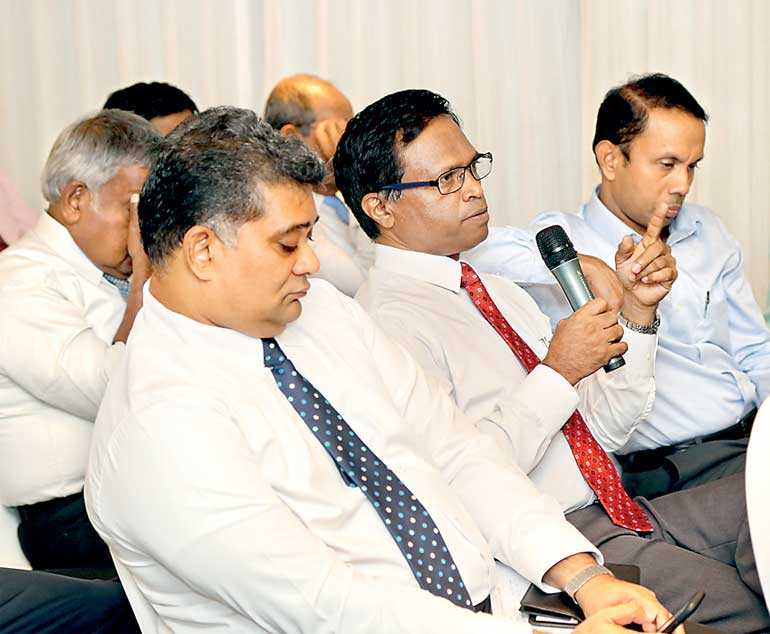
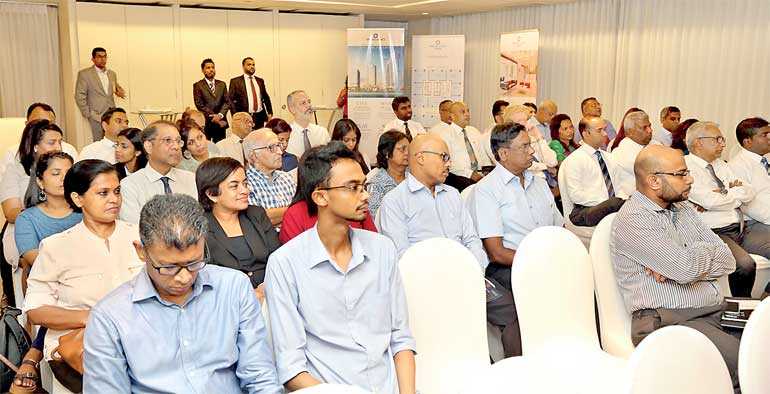
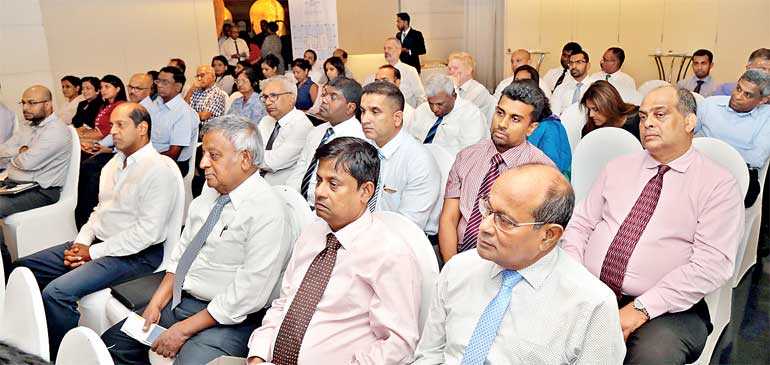
The digital age is well and truly upon us, big data, cloud computing, mobile commerce, smartphone penetration and the explosion of social media and its multitude of platforms mean that the leaders of organisations, whether in the public or private sectors, big or small, must ensure their organisations remain relevant, sustainable and in the best position to deliver their mission and achieve their long-term goals.
Boards can’t allow their companies to fail due to lack of failing to keep up with today’s digital age. They should decisively lead the company into the digital age, to be a creator of change and not be fearful of it. Whilst denial may create a warm and safe place, it is artificial and contribute to failure. Acknowledging that the core components of communication used 10 years ago are no longer relevant today is a good place to start.
Doing nothing is not an option!
Doing nothing to embrace the digital age is not an option, unless your strategy is to become obsolete in a short period of time. Fundamentally, the principles haven’t changed over time – business is still trying to provide a service/product that is valued by its customers and at a competitive price that is affordable to their client base and profitable to the organisation. The only difference is how this is delivered, and the digital age is the next evolution of the business model. The board has a role to play in recognising the importance of this new digital era and its inclusion in the organisation’ s operational framework, even if, in the first instance, it has no idea what it all means!
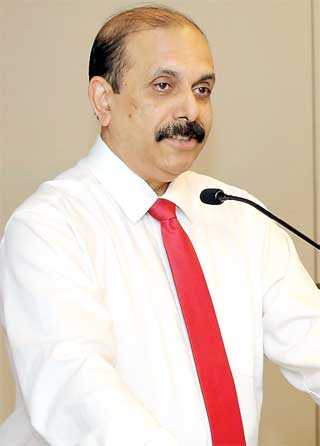 |
Preethi Jayawardena |
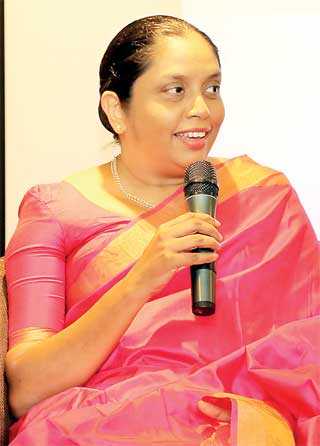 |
Lakmini Wijesundera |
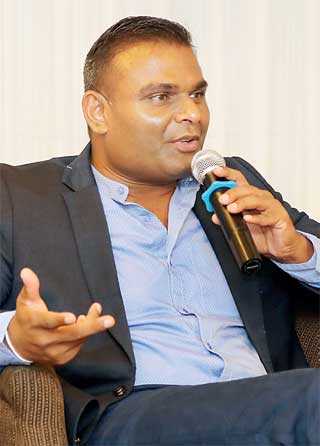 |
Ruwindhu Pieris |
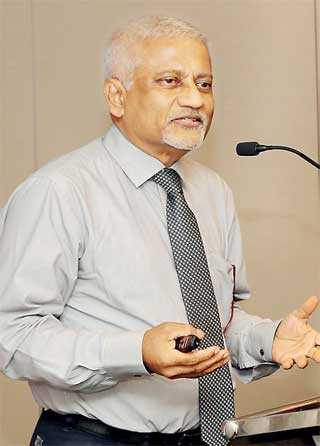 |
Prof. Rohan Samarajiva |
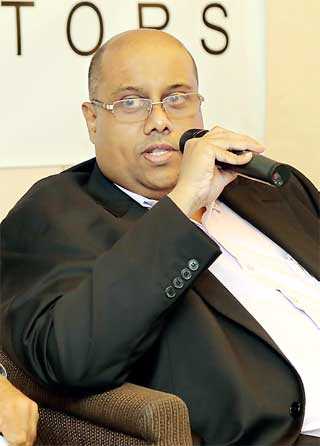 |
Kapila Sri Chandrasekera |
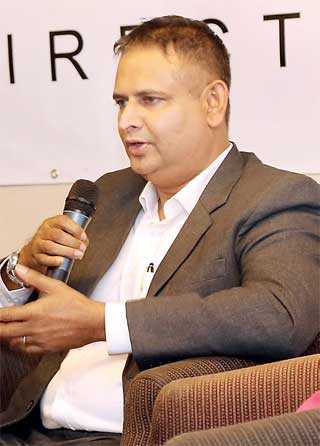 |
Ransith Fernando |
The Sri Lanka Institute of Directors (SLID) as part of its knowledge sharing Power Evenings series recently discussed the Board’s role in driving digital transformation asking the question ‘Does your current Board of Directors have the sort of digital literacy required to consider the impact that technologies such as artificial intelligence, data analytics, or the Internet of Things will have on their company and industry?’
The evening session commenced with SLID Chairman Preethi Jayawardena welcoming the participants with a brief introduction to SLID followed with a synopsis of the topic of the evening. He also said that Sri Lanka needs more development banks to spur the growth of local businesses, particularly the SME sector development activities. The SMEs are considered the backbone of our economy and it accounts for almost 65% of our local businesses and they play a significant role in income distribution and regional development. The keynote address was delivered by ICTA Chairman Prof. Rohan Samarajiva, who spoke on ‘Boards in the Digital Age’.
Board now faces a world of greater uncertainty
Rohan commented that the board should direct the company and assist to respond to external forces. He said that the challenge a board faces is a world of greater uncertainty caused by the faster pace of change and the broadened scope of what is relevant.
Tips to directors to navigate through this era
In conclusion he shared three key points a director can do to navigate through this era of plentiful information where attention is a scarce commodity. The first is to find relevant and high-quality information. He shared how he uses Twitter as a news filter where if something looks interesting he will then get more information about it. He also suggested understanding what assistants can do for you and the things that you have to do yourself.
The second, is to encourage provision of decision-assisting tools such as analytics for anomaly detection and visualisations. But he warned to keep in mind that visualisations can hide as well as illuminate. The third and last was to engage in networking with people from different backgrounds, expertise and knowledge. It is not what you know, but who you know: Just-in-time, pre-processed information. His parting advice was not to surround yourself with people like you and to avoid the ‘echo chamber’.
The panel discussion was moderated by Stax Inc. Managing Director and head of Colombo Office Ruwindhu Pieris. The panel comprised IronOne Technologies/BoardPAC Co-Founder and CEO Lakmini Wijesundere, ICTA Director Kapila Sri Chandrasekera and Forestpin Co-Founder/Director Ransith Fernando.
Majority of boards across countries face the same issue
Ruwindhu commenced the discussion by asking Lakmini what her observation has been on the current understanding of boards of this issue. She shared that, from the perspective of BoardPAC where they meet boards of directors in Sri Lanka as well as from different countries, the experience surprisingly has been the same. Although the company has moved to digitisation and digitalisation the senior directors have a traditional outlook and don’t have the required awareness, they completely embraced it themselves.
Technology can be used to increase efficiency
Kapila shared how he uses technology to serve on a board of directors outside Sri Lanka. The documents for the board meeting are available online on a system similar to BoardPAC and he uses conferencing facilities to attend the monthly meetings. He only attends the AGM once a year. He also overlooks the financials which is also online where he has the necessary tools via technology to drill down and ask the relevant questions.
Ruwindhu referred to an article that was published in the last SLID magazine ‘The Director’ by Faizal Salieh who states that it is the responsibility of the board to ensure that you are not getting disrupted, and also to look inside and direct and assist people to use technology to increase efficiency. He asked the question, how can constitutional boards have that visibility?
Digitisation vs. digitalisation
Rohan explained that there is a difference between digitalisation and digitisation of papers. The issue of how companies go for digitalisation depends on two things. The first is, what are the external competitive pressures faced? You may not know where the pressure is coming from, but it is when you get that external pressure that your behaviour starts changing.
For example, a company like PickMe which is continuously under pressure, especially from Uber and other apps coming into the market has no alternative but to keep innovating and looking at new ways of doing things. However, there are many sectors in Sri Lanka that are complacent where they are. They have cosy little clubs where they don’t attack each other so they don’t face any competitive pressure. Rohan was of the view that it is when both the internal angle and external pressure come together that you will see change happening.
Necessity drives boards to embrace digitisation
Its necessity that drives companies and boards to embrace digitisation. As an example, Rohan shared his experience at ICTA. When it was established in 2003 it had outsourced many functions, had open plan offices and for a government institution was ahead of the curve. It was complacent and for 14 years it had been like this and had gone stale.
When he took over as Chairman, one of the problems was that there were two locations and people in each location thought that the people in the other location did not work! He requested the CEO to do something about. The CEO was also under pressure to reduce cost. He came up with the idea of hot desking and managed to get rid of one location. Hot desking means that you don’t have a desk allocated to you but when you come in you can login to the system and find a suitable desk. You need a layer of technology to run this.
Data analytics can assist boards in risk management
Ransith shared his insights from what Forestpin, a data analytical system, has given to boards. As Rohan stated in his key note presentation there is an information overload which is vying for your attention. The data analytics allows for focus on risks that matters at an operational and Board level. For the board it assists in risk management and the prevention of fraud.
Cost of technology is high. Where should the board draw the line?
A question was raised by Preethi Jayawardena that the cost of technology is quite high so where should the board draw the line? Rohan pointed out that in his example of ICTA introducing hot desking was about saving and not spending.
The CEO was driven by the need to reduce cost whilst as the Chairman his focus was looking at the big picture of a healthier organisational culture. They saved money by getting rid of the second location. If they had kept the second location but used a layer of technology now there would be an additional cost without a saving.
Not about firing people but reallocating resources and saving money
He also cited banks in the US, which is a highly-competitive environment, when they consider installing ATMs they also looked at reducing costs by getting rid of the need for branches and front line staff. There would be an extra expense on the equipment, security and rent but there also would be saving on other expenses.
He shared that his problem with the Government, who was his primary client, was that they were only looking at adding things without cutting down something else. He would like to reduce the number of people standing in line at counters and coming in, he would like to encourage people to go on line and pay their rates, etc. and for the municipalities to save money.
He requested the private sector to also look at this. It was not about firing people but reallocating resources and saving money, and advised board directors to look at ways of using technology to become more efficient which will be also reflected in a better bottom line.
Don’t look for old term solutions for a new business model
Kapila commented that he was from the telecom industry where the cost of new technology was prohibitive. The problem was that we are looking at old term solutions for a new business model. Rohan added that changing the way things are done using technology is digitisation and the way industry functions have transformed using technology is digitalisation.
Ruwindhu summarised the discussion on cost of technology. The takeaway was that there is going to be re-allocation of resource. There were certain investments that need to be taken in technology at face value is expensive, but boards should look at the broader picture of whether you are leverage on technology across the rest of the organisation to unlock potential. Digitisation and digitalisation have allowed organisations to reallocate and re-harvest resources to areas that need to be allocated.
It’s ok not to know
As a first step towards embracing digitalisation directors must be willing to admit that they don’t know – especially on cybersecurity and technology. It is in our culture to pretend that we know when we actually don’t. Must start by admitting that I don’t know it, but I am willing to find out by asking. Boards need to change their mindset!
The business models are being changed, your friends are now your competitors and your competitors now your friends. The board needs to have the ability to grapple with this fast-changing environment and make sense of it and adapt your company to all this.
Digitisation or digitalisation is not technology but business model change
Kapila commented that when we hear the word digitisation and digitalisation we always think of technology and that is where we go wrong. The person who predicted the digital world in 1976 was a sociologist named Alvin Toffler. He was of the view that we must move away from thinking that digitisation/digitalisation is technology. It’s about business model change, thinking change. People who are doing this are not the tech companies, but they are sociologists, economists.
Boards need to use digital tools to understand and embrace the digital age
What is the average age of Sri Lankan boards? Lakmini said usually boards are older as they would have gone through the senior ranks and have experience when they take up the board position. The age ranges from 50s-60s and sometimes they are older. As she mentioned earlier this is not particular only to Sri Lanka.
With the concept of digitalisation of the board, if the board is experientially working on digitalisation then there is a fundamental understanding of cybersecurity because you would have asked the question, how secure is the system? If you don’t use the digital tools you won’t understand why it is so expensive and appreciate the need for it. The concept is the same throughout the company. Ruwindhu commented that there is nothing like experience and each board director must embrace it.
Lakmini commented that BoardPAC attends many international IoD conferences and they have this same conversation. We may think that these countries are much more advanced and technologically savvy but directors when they vote at the conferences indicate that they do not have a proper understanding of technology. It human and not country specific.
Ransith shared that there were very young graduates who have created companies that will become quite large soon. They will have board members who are young and digitally savvy. Companies should be reaching out to them and leverage on their expertise.
Vision for Sri Lanka at 100 years of independence
In conclusion Ruwindhu asked the panellists with Sri Lanka celebrating 71 years of independence, what is their vision for Sri Lanka when it celebrates 100 years of independence?
Lakmini commented that Sri Lanka being a small island and embraces globalisation using these technologies could leapfrog and achieve something. Ransith thought that there was a lot of potential and with digitisation we could bring people back to Sri Lanka as they could work from within Sri Lanka for overseas companies.
Kapila was of the view that there wouldn’t be a Sri Lanka in 30 years! He explained that digitisation will take away the concept of a nation state and people will be digital nomads and there won’t be a need for a government and politicians! Rohan shared that he saw Sri Lanka being a very important part of the Bay of Bengal region and doesn’t think that the borders are going away. There will be some interesting possibilities for Sri Lanka.
The closing remarks were delivered by SLID CEO Chamindā de Silva who thanked the Platinum Event Sponsor One Galle Face and SLID’s Annual Corporate Partners Certis Lanka Security and Allianz Insurance, Annual Print Media Partner Wijeya Newspapers, Hospitality Partner Cinnamon Grand and the participants for attending the event. The evening concluded with refreshment being served and the opportunity to network where further discussion on the topic continued.